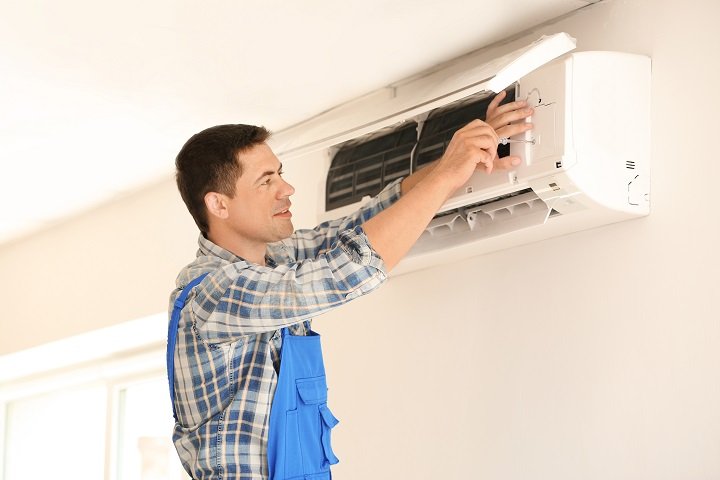Should I repair or replace my AC? This is a common question that most people with air conditioners ask. However, this is not an easy decision to make. In this post, we shall discuss the factors to consider before deciding whether to repair or replace your air conditioner. Keeping these factors in mind can help you craft a good plan of action—especially if your AC breaks down in the middle of the summer season.
Things to consider when deciding whether to repair or replace your air conditioner
The age of your air conditioner
The first factor to consider when deciding whether to repair or replace your air conditioning system is its age. The truth is that over time, most ACs break down, and the older they are, the higher the chances are that they will break down. An average unit lasts between 10 – 15 years, depending on what type it is and how it has been maintained since day one. If you have an old AC that has broken down several times, then it may be better to get a new one because you would end up spending more money on repairs than if you had just bought a new unit in the first place.
How often does your current AC seem to break down?
Another factor to consider is how often your current AC seems to break down. If you notice that it stops working at least twice a month, then it might be advisable to get a new one as this would save you expenses in the long run. However, if its frequency of breaking down is not as severe as that, then getting it repaired might still make more sense than replacing it with a new unit because repairs are usually cheaper.
There are several reasons why AC systems break down. These reasons include:
- Wear and tear – the general process of aging and degradation that all materials experience over time
- Cooling problems – this often happens because of excessive dirt on the outside unit, which interrupts its airflow and reduces its cooling efficiency
- Water leakage – this is not as common as other reasons, but it can go unnoticed for a long time and cause gradual damage to your AC’s internal components, such as the condensers and evaporator coils
- Electrical failure – faulty electrical wiring can lead to several malfunctions, including your air conditioner turning off at random, water leaks around the outdoor unit, or infrequent cooling.
- Compressor malfunction – if there’s mechanical damage to your air conditioner, then it may not be able to cool your home effectively.
- Refrigerant gas leaks – these happen due to either damage to the refrigerant lines or contamination by oil droplets caused by lubrication breakdown.
- Wiring and control problems – low voltage and wiring errors may cause AC systems to fail. If you notice that your AC keeps turning off randomly, then there’s a good chance there’s a problem with the wiring system for the outdoor unit. However, if it turns off but keeps blowing cold air for some time before it stops again, there are probably faulty controls within the unit itself that will need fixing or replacing.
Your budget and ability to repair and maintain your air conditioner
The third factor is closely linked with the second; however, we shall address them separately because they carry different weights in this context. First off, you need to know if you can afford to fix and maintain your AC every time something goes wrong with it. Knowing this will help you decide whether to replace the call-out fee and hire a professional or try and fix it yourself and avoid hiring someone else.
Your usage
The final factor is not as much about your air conditioner as about your lifestyle habits. If you live in a place where the weather during the winters is still pretty warm (above 20 degrees Celsius), then you would not need an AC at that time of year—unless it’s for occasional use like when company comes over. That means that if it breaks down, there wouldn’t be any significant consequences aside from some discomfort till you get it fixed.
In the summertime, the same principles apply. If it’s hot enough for an AC to be necessary during summer seasons (above 30 degrees Celsius), then you need to replace your air conditioner. However, if that’s not the case and it is only occasionally warm during summers (between 20-30 degrees Celsius), replacing it wouldn’t be worth the money because most repairs are cheaper than buying a new unit. However, if you live in a place with cold winters (below 20 degrees Celsius), then your AC would be needed in those winters as well, which means that you should consider getting a new one.
Bottom Line
According to the technicians from Hartman, Orlando Air Conditioner Repair Company, factors that determine when to repair or replace your AC are whether the cost of repairs outweighs the cost of buying a new unit, how much you use it during cooler months, its overall condition, and costs associated with fixing any identified problems.
